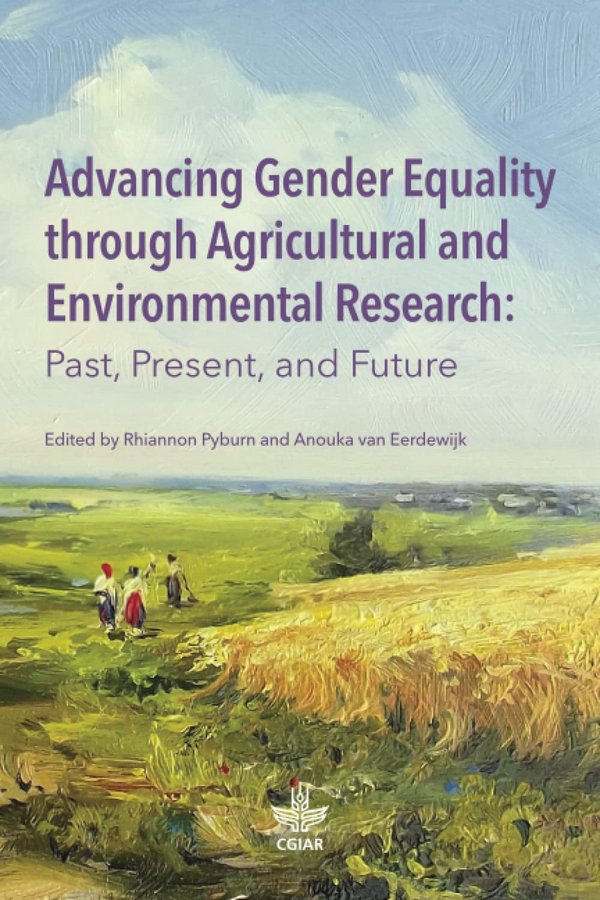- Share this article
- Subscribe to our newsletter
Advancing Gender Equality through Agricultural and Environmental Research
The book Advancing Gender Equality through Agricultural and Environmental Research: Past, Present, and Future was published by CGIAR in November 2021. The past decade has seen renewed interest in gender equality and women’s empowerment in the agricultural development sector – this book is part of that momentum and the ideas it is generating.
It marks a shift away from a typical, instrumentalist outlook focused on how gender analysis can contribute to research objectives, such as improved productivity. The contributors intentionally flip the question to ask: How does agricultural and environmental research and development contribute to gender equality and women’s empowerment? The book highlights the history and wealth of gender knowledge that has been generated to date by researchers from CGIAR.
Research and development approaches and interventions can, and do, lead to positive empowerment and gender equality outcomes for women, the authors write. But agricultural and environmental developments and interventions also have negative effects on women’s empowerment and can even exacerbate gender inequalities. Negative or disempowering effects include increases to women’s workload and subsequent time poverty, loss of control over agricultural production processes as well as other critical, yet often undocumented, disempowering effects, such as increases in household conflict and intimate partner violence. These negative and positive empowerment effects can happen at the same time. The authors point out that explicit attention to these often-contradictory effects is needed, but perhaps more important is the realisation that positive and empowering effects do not happen automatically.
The first set of chapters tackles technical research topics in which there is greater scope for gender integration (breeding, seed systems, value chains). The second set delves into research themes where gender analysis is well integrated and even pivotal (nutrition-sensitive agriculture, natural resource governance, climate adaptation and mitigation). The third set covers strategic gender-specific themes (the feminisation of agriculture, assessing women’s empowerment, gender transformative approaches).
(CGIAR/ile)
Read more and download the book from the CGIAR website





Add a comment
Be the First to Comment